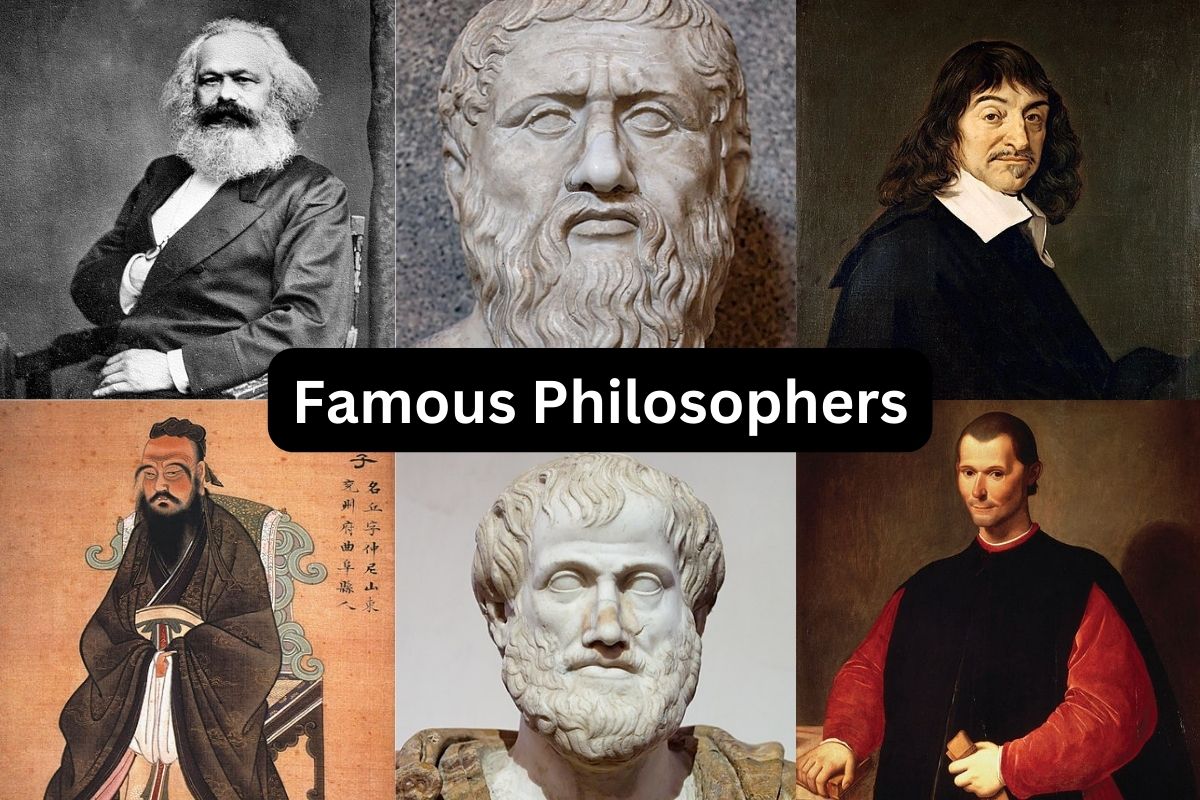Philosophy is the study of fundamental questions about existence, knowledge, morality, and the human condition.
Throughout history, many influential thinkers have contributed to the development of philosophical thought.
These philosophers have shaped our understanding of the world and influenced many aspects of our lives, from politics and ethics to art and literature.
Some of the most famous philosophers have become household names, with their ideas and writings continuing to inspire and challenge us today.
In this regard, this article provides an introduction to some of the most famous philosophers of all time and their significant contributions to the field of philosophy.
Famous Philosophers
1. Plato

Plato was a Greek philosopher who lived from 428/427 BCE to 348/347 BCE. He was a student of Socrates and is considered one of the most important figures in the development of Western philosophy.
Plato founded the Academy in Athens, which was one of the earliest institutions of higher learning in the Western world. He is known for his extensive writings on a variety of philosophical topics, including ethics, politics, epistemology, and metaphysics.
One of Plato’s most famous works is “The Republic,” a dialogue in which he presents his vision of a just society. In this work, Plato explores questions of political philosophy, ethics, and the nature of reality.
Also Read: Plato Facts
He also develops the concept of “Forms,” or abstract objects that exist independently of the physical world, which has had a lasting impact on Western philosophy.
Plato believed in the power of reason and the importance of pursuing knowledge and truth. He also emphasized the role of education in shaping individuals and society.
He ideas have had a profound influence on Western thought, including the development of Christian theology, the Renaissance, and the Enlightenment.
2. Socrates

Socrates was a Greek philosopher who lived from 470/469 BCE to 399 BCE. He is widely regarded as one of the founders of Western philosophy and is known for his emphasis on questioning and self-examination.
Socrates believed that the pursuit of knowledge and truth was the key to a meaningful life, and he famously said, “The unexamined life is not worth living.”
Socrates did not leave any written works himself, but his ideas and teachings were recorded by his students, most notably Plato. Socrates was known for his Socratic method of questioning, which involved asking a series of questions to help clarify a person’s beliefs and ideas.
He believed that by questioning assumptions and examining beliefs, people could come to a better understanding of themselves and the world around them.
Socrates was a controversial figure in Athens and was eventually put on trial and sentenced to death for impiety and corrupting the youth. Despite his death, Socrates’ ideas and teachings had a lasting impact on Western philosophy.
His emphasis on reason and self-examination has influenced thinkers throughout history, including Plato, Aristotle, and Descartes. Socrates’ legacy also extends beyond philosophy, inspiring figures in literature, art, and politics.
3. Aristotle

Aristotle was a Greek philosopher who lived from 384 BCE to 322 BCE. He was a student of Plato and went on to become a teacher to Alexander the Great. Aristotle made significant contributions to a wide range of philosophical fields, including logic, metaphysics, ethics, and politics.
Aristotle believed in the power of reason and empirical observation as the means to gain knowledge and understand the world.
Also Read: Accomplishments of Aristotle
He developed a system of logic that is still used today, and his work in metaphysics explored the nature of reality and the concept of causation. Aristotle’s ethical theory focused on the idea of virtue and the importance of cultivating good character.
Aristotle also made significant contributions to political philosophy, exploring the role of the state and the nature of citizenship. His work on politics and ethics has had a lasting impact on Western philosophy and has influenced many aspects of modern political theory.
Aristotle’s writings were highly influential during his lifetime and have continued to be studied and debated for centuries. His ideas have had a profound impact on Western thought, influencing thinkers from Aquinas to Nietzsche.
4. Immanuel Kant
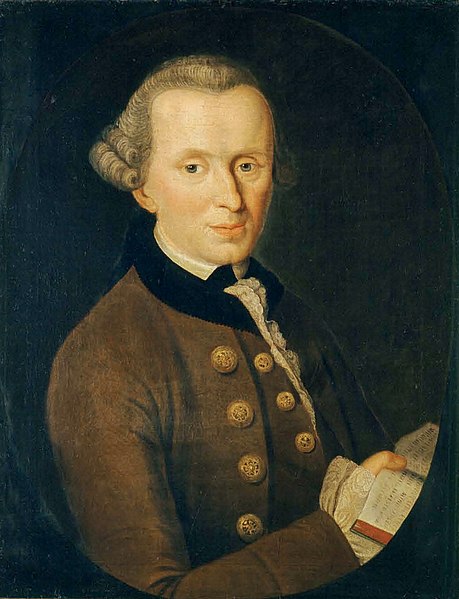
Immanuel Kant was an 18th-century German philosopher who made significant contributions to a wide range of philosophical fields, including metaphysics, epistemology, ethics, and aesthetics. He is considered one of the most influential thinkers in the history of Western philosophy.
Kant’s work centered around the idea of reason and its limitations. He believed that knowledge and understanding are shaped by the human mind, and that the mind has inherent limitations that prevent us from knowing things beyond our experience.
He also developed the concept of the “categorical imperative,” a moral principle that states that actions should be chosen based on their universal applicability, rather than individual desires or circumstances.
Kant’s work in aesthetics explored the nature of beauty and art, and he argued that beauty is subjective and depends on the experience of the observer. His philosophical system, known as Kantianism, has had a profound impact on philosophy and has influenced many subsequent thinkers.
Kant’s ideas have been the subject of intense debate and interpretation since their introduction. His work continues to influence contemporary philosophy, particularly in areas such as ethics and epistemology, and his influence extends beyond philosophy to fields such as political theory, law, and theology.
5. René Descartes

René Descartes was a 17th-century French philosopher and mathematician who is widely regarded as the founder of modern philosophy. He made significant contributions to the fields of metaphysics, epistemology, and philosophy of mind.
Descartes is known for his method of doubt, which he used to systematically question everything he believed to be true. He famously declared, “Cogito, ergo sum” (I think, therefore I am), which became the foundation of his philosophy.
Descartes argued that the only thing that could be known for certain was the existence of one’s own mind, and that knowledge of the external world could only be attained through reason and deduction.
Descartes also made significant contributions to the development of modern mathematics, including the invention of Cartesian coordinates and the application of algebra to geometry.
Descartes’ ideas had a profound impact on Western philosophy and influenced many subsequent thinkers. His work laid the groundwork for the development of modern science and helped to establish the importance of reason and evidence in understanding the world. His legacy continues to influence contemporary philosophy and science.
6. Friedrich Nietzsche
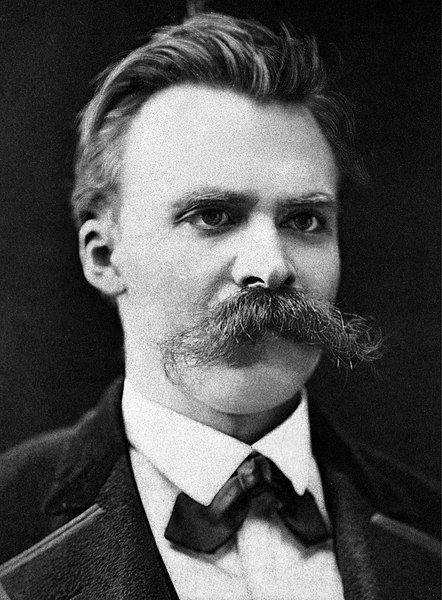
Friedrich Nietzsche was a 19th-century German philosopher who is known for his critiques of traditional morality and religion. He made significant contributions to the fields of existentialism, ethics, and the philosophy of art.
Nietzsche rejected traditional moral values, arguing that they were based on outdated religious beliefs and that individuals should create their own values based on their personal experience. He developed the concept of the “will to power,” which suggests that individuals should strive to achieve their full potential and exercise their power over themselves and others.
Nietzsche’s work also explored the nature of art and aesthetics, arguing that art could be used to create a more fulfilling and meaningful existence. He rejected traditional ideas of beauty, instead emphasizing the importance of individual creativity and expression.
Nietzsche’s ideas were highly controversial during his lifetime and continue to be debated and interpreted today. His work has had a significant impact on philosophy, literature, and popular culture, and his influence can be seen in the work of existentialist and postmodernist thinkers.
Nietzsche’s critiques of traditional values and his emphasis on individualism continue to inspire and challenge contemporary thought.
7. John Locke
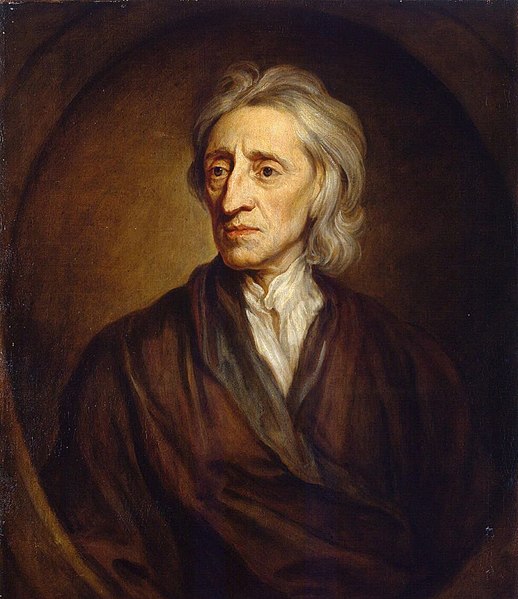
John Locke was a 17th-century English philosopher who made significant contributions to the fields of epistemology, political theory, and economics. He is known for his ideas about natural rights, social contract theory, and empiricism.
Locke believed that individuals have certain natural rights, including the right to life, liberty, and property. He argued that governments should be formed through a social contract in which individuals surrender some of their natural rights in exchange for protection of their remaining rights.
Locke’s work in epistemology challenged the traditional idea of innate ideas, arguing instead that all knowledge comes from experience. He developed the concept of “tabula rasa,” or the idea that the mind is a blank slate at birth and that all knowledge is acquired through experience.
Locke’s ideas had a significant impact on the development of modern liberalism and democracy. His emphasis on natural rights and the consent of the governed influenced the development of the United States Constitution and other modern constitutions around the world.
Locke’s work also contributed to the development of classical economics, particularly his ideas about the role of markets and the importance of property rights. His influence on philosophy and political theory continues to be felt today, particularly in debates about individual rights and the role of government in society.
8. Karl Marx

Karl Marx was a 19th-century German philosopher and economist who is best known for his critiques of capitalism and his role in the development of communism. Marx’s ideas have had a profound impact on the fields of economics, political theory, and sociology.
Marx argued that capitalism was inherently unjust, exploiting the working class for the benefit of the wealthy elite. He believed that the class struggle between the proletariat and the bourgeoisie would eventually lead to a revolution and the establishment of a socialist system in which the means of production were controlled by the workers.
Marx’s vision of a communist society was one in which individuals would be free to pursue their interests and develop their full potential.
Marx’s work in economics focused on the labor theory of value, which argued that the value of goods and services was determined by the amount of labor required to produce them. He believed that capitalism relied on the exploitation of workers, who were not fully compensated for their labor.
Marx’s ideas have been the subject of intense debate and interpretation since their introduction. His influence can be seen in the development of socialist and communist movements around the world, and his critiques of capitalism continue to be relevant today. Marx’s work has also influenced the development of sociology, particularly in the areas of social stratification and class conflict.
9. Voltaire

Voltaire, whose real name was François-Marie Arouet, was an 18th-century French writer, philosopher, and social critic. He is known for his wit, satire, and criticism of the Church and the French monarchy.
Voltaire was a prominent figure in the Enlightenment, a movement that emphasized reason, science, and individual liberty. He championed free speech, religious tolerance, and the separation of church and state. Voltaire’s work was influential in shaping modern Western thought, particularly in the areas of politics, philosophy, and literature.
Voltaire’s most famous works include “Candide,” a satirical novel that criticizes the optimism of the Enlightenment, and “Letters Concerning the English Nation,” which praises English political and religious institutions while criticizing those of France. He also wrote numerous plays, poems, and essays on a variety of topics, including history, science, and philosophy.
Voltaire’s ideas and writings had a profound impact on the development of modern Western thought. His emphasis on reason and individual liberty helped to shape the French Revolution and influenced the development of modern democracy. His work in the areas of science and philosophy also contributed to the development of modern thought, particularly in the areas of physics and metaphysics.
10. David Hume
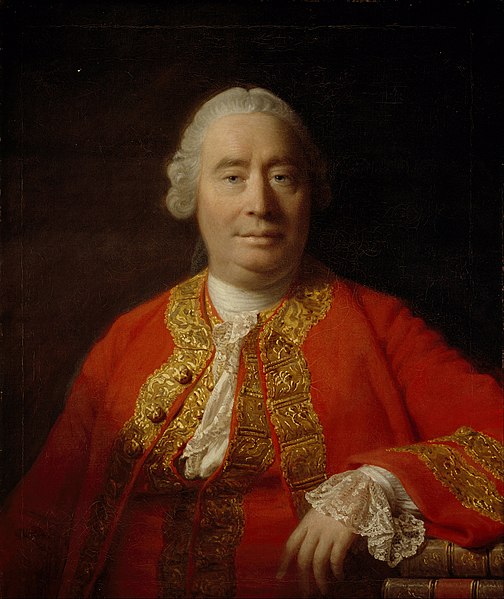
David Hume was an 18th-century Scottish philosopher who is known for his contributions to the fields of epistemology, ethics, and aesthetics. He is considered one of the most important figures in the history of Western philosophy.
Hume’s work in epistemology challenged traditional ideas about knowledge, arguing that all ideas come from experience and that there is no innate knowledge. He also developed the concept of causation, arguing that we can only know about cause-and-effect relationships through observation and experience.
Hume’s work in ethics emphasized the importance of reason in moral decision-making, arguing that reason should guide our actions rather than tradition or emotion. He also explored the concept of moral relativism, suggesting that moral values are relative to the culture in which they are held.
Hume’s work in aesthetics focused on the nature of beauty and art, arguing that beauty is a subjective experience that depends on individual perception. He also explored the concept of the sublime, or the feeling of awe and wonder that can be experienced in the presence of great art or natural beauty.
Hume’s ideas and writings had a profound impact on Western philosophy, influencing thinkers such as Kant and Mill. His work continues to be studied and debated today, particularly in the areas of epistemology and ethics.
11. Kong Qiu
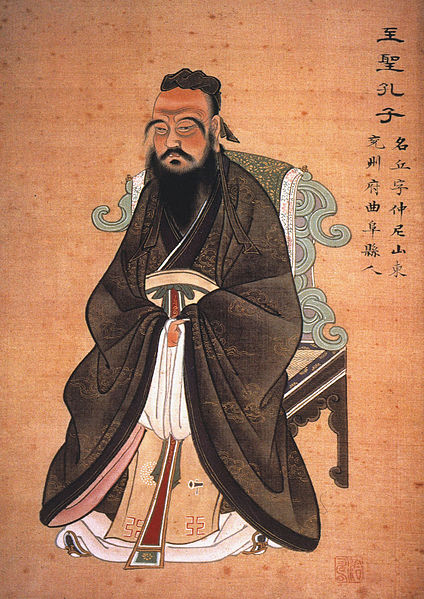
Kong Qiu, more commonly known as Confucius, was a Chinese philosopher and politician who lived from 551 BCE to 479 BCE. He is known for his emphasis on moral and ethical principles, which have had a lasting impact on Chinese culture and philosophy.
Confucius believed in the importance of education, and he emphasized the need for individuals to cultivate their character and virtues through study and self-reflection. He believed that society should be organized around ethical principles, and he emphasized the importance of filial piety, respect for elders, and social harmony.
Confucius’ teachings were recorded in the “Analects,” a collection of sayings and dialogues that have become one of the most important texts in Chinese philosophy. His ideas about education, ethics, and politics have influenced Chinese thought and culture for centuries, and his influence can be seen in everything from Chinese literature and art to political philosophy and government policy.
Confucius’ teachings have also had a significant impact on the development of East Asian philosophy and culture more broadly, and his emphasis on the importance of ethics and education continue to inspire and challenge contemporary thought.
12. Simone de Beauvoir
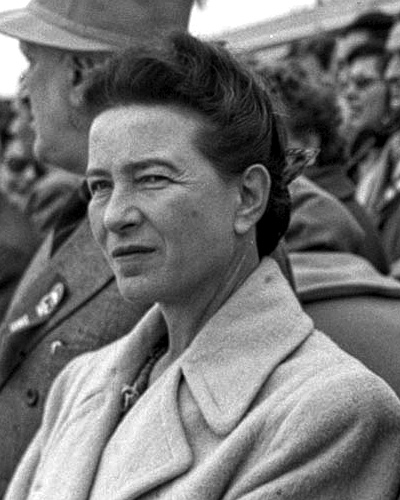
Simone de Beauvoir was a 20th-century French philosopher, writer, and feminist who made significant contributions to the fields of existentialism, ethics, and feminism. She is best known for her groundbreaking work “The Second Sex,” which is considered a foundational text of modern feminism.
De Beauvoir’s work in existentialism focused on the question of human existence and the search for meaning in life. She argued that individuals should take responsibility for their own lives and create their own meaning through their choices and actions.
De Beauvoir’s work in ethics emphasized the importance of individual freedom and the rejection of oppressive social norms. She argued that gender was a social construct, and that women were oppressed by a patriarchal society that limited their opportunities and freedom.
“The Second Sex” explored the history and nature of gender inequality and argued that women were not inherently inferior to men but were oppressed by social structures that denied them equal rights and opportunities. The book had a profound impact on the feminist movement and is still widely read and studied today.
De Beauvoir’s ideas and writings continue to inspire and challenge contemporary thought in the fields of ethics, feminism, and existentialism. Her emphasis on individual freedom and the rejection of oppressive social structures has had a lasting impact on feminist and social justice movements around the world.
13. Jean-Jacques Rousseau
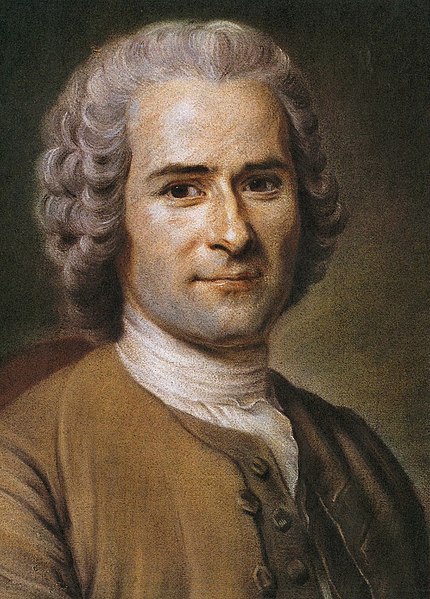
Jean-Jacques Rousseau was an 18th-century Swiss philosopher and writer who made significant contributions to the fields of political theory, education, and literature. He is considered one of the most important figures of the Enlightenment.
Rousseau’s work in political theory emphasized the importance of individual freedom and the rejection of oppressive social structures. He argued that government should be based on the consent of the governed and that the social contract should be based on the general will of the people.
Rousseau’s work in education emphasized the importance of individual development and the role of education in shaping individuals and society. He argued that education should be based on natural principles and should focus on developing the individual’s potential rather than preparing them for a specific role in society.
Rousseau’s most famous work, “The Social Contract,” has had a profound impact on political theory and has influenced the development of modern democracy. He also made significant contributions to the development of the novel, writing works such as “Julie, or the New Heloise” and “Emile, or On Education.”
Rousseau’s ideas and writings continue to be studied and debated today. His emphasis on individual freedom and the rejection of oppressive social structures has influenced modern social justice movements, while his ideas about education continue to shape contemporary pedagogy.
14. Niccolo Machiavelli
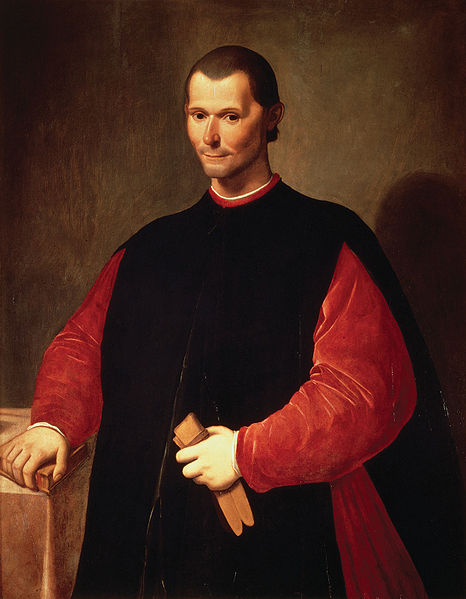
Niccolò Machiavelli was an Italian Renaissance writer and political philosopher who lived from 1469 to 1527. He is best known for his work “The Prince,” a treatise on political power and leadership.
Machiavelli’s work in political philosophy emphasized the importance of practicality and effectiveness over moral principles. He argued that rulers should do whatever was necessary to maintain power, even if it meant using force or deception.
Machiavelli believed that the end justified the means and that rulers should be willing to make unpopular decisions if it meant maintaining their power and achieving their goals.
Machiavelli’s ideas about leadership and politics were controversial during his lifetime and have remained so in the centuries since. Some have seen him as a cynical realist who justified immoral actions, while others have viewed him as a realist who recognized the harsh realities of politics and leadership.
Despite the controversy surrounding his work, Machiavelli’s ideas about leadership and power have had a lasting impact on political philosophy and have influenced many subsequent thinkers. His emphasis on practicality and effectiveness over moral principles has been the subject of intense debate and interpretation, and his work continues to be studied and debated today.
15. Bertrand Russell
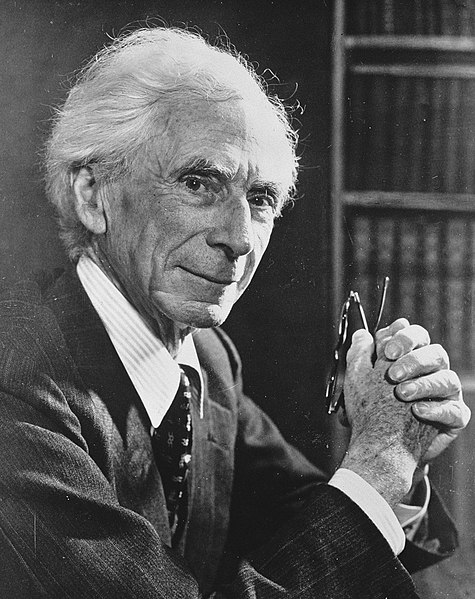
Bertrand Russell was a 20th-century British philosopher, mathematician, and social activist who made significant contributions to the fields of logic, epistemology, and political philosophy. He is considered one of the most important philosophers of the 20th century.
Russell’s work in logic and mathematics focused on the development of a formal system of logic that would serve as the foundation for all mathematical reasoning. His work in epistemology challenged traditional ideas about knowledge, arguing that knowledge should be based on evidence and reason rather than tradition or authority.
Russell’s work in political philosophy emphasized the importance of individual freedom and social justice. He was an outspoken critic of war and nuclear weapons and was an advocate for nuclear disarmament and world peace.
He also argued for the importance of democracy and human rights and was a champion of civil liberties and free speech.
Russell’s ideas and writings continue to be studied and debated today. His work in logic and mathematics has had a lasting impact on the development of modern computer science, while his work in political philosophy has influenced contemporary debates about social justice, democracy, and human rights. Russell’s commitment to social justice and human rights has inspired many social activists and remains an important legacy of his work.
